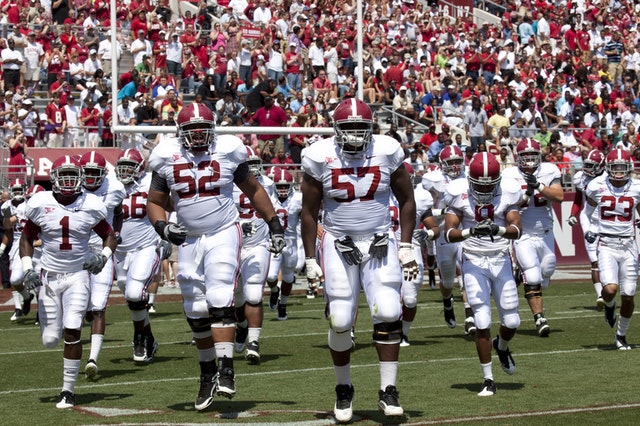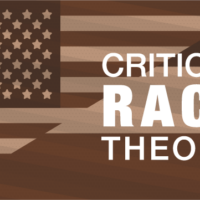

Alabama, Clemson, Ohio State, Repeat…
So how many of you out there watched the National Championship college football game between Alabama and Ohio State last Monday night? Yeah, me neither. I absolutely love me some football, but I cannot stand to watch the college game. Sure, you can rack it up to the fact that my alma mater, Colgate University, barely even has a Division I football team, so much so that their once-annual clash with nearby Syracuse was eliminated in recent years as a pure case of existential mercy when the drubbings simply began to get way too out of hand. But my sports resentment and envy is not what is really at play here. No, the reason I can’t stand to watch college football is that the playoff system and competitive balance are entirely broken, providing an eerie resemblance to the economic disparity that is mirrored in our society at large.
So just why do I hate college football so much? Well, for starters I, like many people not located in the states of Alabama, South Carolina, and Ohio am sick and tired of seeing the same three teams vie for a national championship. And to be honest, you could really make the case that it actually just comes down to Clemson and Alabama. Since college football moved to the current four-team playoff system in 2014, Alabama and Clemson have each made it to the final four every year but one, leaving only two other spots open for other possible contenders. And in those seven years, either Alabama or Clemson has won the national championship five times with last year’s victory by LSU and Ohio State’s win in 2014 being the lone exceptions. In fact, Alabama and Clemson have faced each other in the National Championship game an astounding three times in just seven years. So while these two schools have each appeared in the playoff six times in seven years, with Ohio State and Oklahoma appearing four times and Notre Dame twice, nobody else has made it more than once. The only other teams to have even won a semi-final game in the playoff series are Georgia, LSU, and Oregon. In other words, despite the fact that there are 130 teams in Division I football, only two or three teams really have a reasonable shot at winning it all (certainly not my beloved Colgate). And that competitive imbalance might be hugely entertaining for the fans of those three schools, but for the rest of us, college football has simply devolved into an uninspiring inevitability.
Now don’t get me wrong, I do not blame the schools at the top for making it this way. Of course I hate Alabama coach Nick Saban’s creepy smile (or lack thereof) and his absolute lack of joy even when winning, but that’s not what impacts the sport’s watchability. No, these coaches are hired to win games, and that is what they do. I cannot blame them for simply being better at their job than anyone else. The problem is that the system itself is horribly flawed. They just take advantage of it better than everyone else.
The first glaring disparity in college football of course arises from money. And let’s face it, money begets more money. In 2020, Alabama spent a whopping $56.1 million on its football program, affording the school top-notch facilities and coaches. Meanwhile, back in my state of Colorado, the University of Colorado allocated $18.4 million to its program. Some may say even that number is way too high, but in the world of big-time college athletics, that just isn’t going to get it done. If you were a top college recruit and could go anywhere you want, would you go to the school with the shiny, new facilities and outstanding coaches or the one spending a third of that budget on theirs? Ok, that was obviously a stupid question. The NFL, like many other professional sports leagues, has instituted a salary cap that serves to standardize the spending by each team and thus provide for more competitive balance. In college football, meanwhile, it’s the old Wild, Wild West where the phrase just seems to be “Spend ‘em if you got ‘em”.
Moreover, that success only tends to perpetuate more success. If you’ve seen my son play football, or any sport really, you know he isn’t getting an athletic scholarship anytime soon (and don’t even mention my daughter who hates all things competitive just as a prima facie principle), but if he was a five-star college recruit you damn well better believe I would want him to play for Alabama or Clemson. While Saban is reported to be a remarkable recruiter, he doesn’t even need to be. My guess is that he could walk through most of these families’ doors, hand them the letter of intent and say, “I’m Nick Saban. Want to play for Alabama? Sign this,” and at least half of them would sign it on the spot. After all, we all know what these kids really want: a chance to play in the NFL, and who gives them a better shot at doing so than Clemson, Alabama, or Ohio State? As such, these programs continue to amass talent that other schools simply cannot keep up with. The result is a competitive advantage that is self-perpetuating, widening the gap between the have and have nots with each and every championship season.
Of course, in the NFL, there is a draft that gives the top picks to the teams that did worst the previous season. This helps bad teams get better and brings powerhouses back to the field. This allows for greater parity and competitive balance, which in turn makes for far more intriguing matchups throughout the season. But isn’t that what some would declare as socialist- giving hand outs to those who have performed poorly in the past and compromising those who have achieved success? College football is more like free market capitalism where there is no attempt at creating an even playing field. Some would argue that the former rewards mediocrity, that it doesn’t incentivize success. But how does starting a season already knowing you have no chance to win a championship motivate someone? Likewise, how does being born into socioeconomic misfortune give you hope to become your best self? What pushes people to fully develop their talents is the belief that they have a shot just like everyone else, but far too often we have smart, young kids sitting on the sidelines knowing that they never really had a chance. And while that competitive imbalance might be just fine if you’re already sitting on top, it only serves to crush the spirits of those who would aspire to be something more.
Steven Craig is the author of the best-selling novel WAITING FOR TODAY, as well as numerous published poems, short stories, and dramatic works. Read his blog TRUTH: In 1000 Words or Less every THURSDAY at www.waitingfortoday.com






